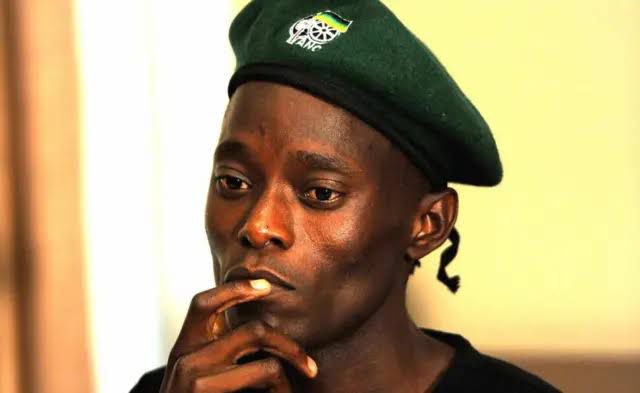Are calls for an economic CODESA justified?
By Ndumiso Hadebe
A dear friend once shared a thought-provoking story with me; one such story that dates back to the days of the slave trade. Of a ship that had just captured people to become a part of this illicit trade somewhere along the Gulf of Guinea and the ship was hovering somewhere along the Atlantic Ocean. Naturally, because this form of commerce was based upon the inhumane and self-interested deeds of one to the other, those who were on the receiving end of the stick were unjustifiably oppressed and had every right to resist their own oppression.
The slave traders were based on the top of the cabin in this ship and the slaves were located in the bottom lower compartments of the ship so as to use their energies to steer the ship forward whilst the slave traders were comfortably directing the ship to whichsoever destination they wished. Over time, the slaves found creative ways to communicate with each other in a way that would not solicit the attention of the guards and organised themselves for the take-over of the ship and they would once again, have their freedom and opportunity to self-determine.

The day of reckoning came and their orchestrated plan was a success. They successfully overthrew the slave traders off the ship and now had complete control over it. Days after the overthrowing of the slave traders and with the ship still hovering over the Atlantic Ocean, one of the slaves (who was no longer a slave) posed this question to his compatriots; ‘Dear Compatriots, we have endured a common struggle and made use of our God-given ingenuity and sense of common purpose to share in a common victory today – we do. Therefore, dare I ask, now that we have our freedom and opportunity to self-determine – where are we going with this ship?’
Albeit, not exactly, we could associate similarities between SA’s democratic transition to that of the story that my good friend shared with me. However, in our case, we have tangible documents with which we can reference the aspirations we had in process of the transition.
Part of reflecting on the 25 years of our democratic dispensation ought to entail that we interrogate how far we have come not only in terms of our own or aggregated material conditions but by what some of the founding documents of the democratic order envisaged we would be.
One such point of reflection can be located in the work of the Convention for a Democratic South Africa in the early 1990s either wise known as CODESA. A quarter of a century later there are growing calls for an economic CODESA, these clarion calls stem from a slow pace of growth but not has not been as inclusive and transformed as was envisaged. More so, between what is coined today as the first and second economy as phrased by former President Mbeki.
“The first economy referring to one side of the South African economy that is white, relatively prosperous regardless of gender or geographic dispersal – it has ready access to a developed economy, physical, educational communication and other infrastructure. But the second and larger nation of South Africa is black and poor, with the worst affected being women in rural areas, the black rural population in general and those with disabilities. And this nation lives under conditions of a grossly underdeveloped economic, physical, educational, communication and other infrastructure – it has virtually no possibility to exercise what in reality amongst a theoretical right to equal opportunity. “
A case for an economic CODESA?
The Codesa negotiations that took place in December 1991 involved 19 groups and parties, including the ANC, the now-defunct National Party, the Inkatha Freedom Party, the Democratic Party (which is now the Democratic Alliance) and the SA Communist Party. CODESA 1 and 2 set the framework of the democratic order that SA upholds to this day, including a one-man, one-vote system wherein its citizens can vote in free and fair elections for the political party of their choice that best reflects their hopes and aspirations.
The latest “Poverty Trends in South Africa” by Stats SA illustrates that, despite the general decline in poverty between 2006 and 2011, poverty levels in South Africa rose in 2015. More than half of South Africans were poor in 2015, with the poverty headcount increasing to 55,5% from a series low of 53,2% in 2011. The figures are calculated using the upper-bound poverty line of R992 per person per month in 2015 prices. This translates into over 30,4 million South Africans living in poverty in 2015. Albeit, the headcount of people living in impoverished conditions increased, the situation has improved compared to 10 years earlier.
A combination of weak economic growth, continuing high unemployment levels, bearish commodity prices, higher consumer prices, policy uncertainty, lower investment levels compounded by other international factors between the 2011 and 2015 period led to muted productivity gains. The resultant outcome of that has been a decline in the financial health of SA households.
Part of the central challenges that faced CODESA after numerous Working Groups and sub-groups on wide-ranging issues was to completely transform the economy of SA from having a racial face as referenced in the conceptualization of the first and second economy.
The Living Conditions Survey by Stats SA paints a picture that says the following from data collected from 23,380 households across the country over a period of 12 months (2014/2015). The average income in South Africa is approximately R138,168 per annum, with the biggest portion derived primarily from work. Other income sources include capital gains, pensions and allowances, and rent. The data shows that white South Africans still command the highest average incomes in the country at approximately R444,446 a year. This is over 1.5 times greater than Indians/Asians at R271,621 per year, and almost 5 times more than black South Africans, at R92,893 per year. Labour market discrepancies, a loss of competitiveness and structural impediments are but some of the factors that have contributed to not changing this picture.
And so perhaps, the call for an economic CODESA is so as to give as much attention, creativity and ingenuity to the unemployment problem as we did when it came to the formation of a constitutional democracy and a relatively peaceful transition. A starting point in such a convention would be to acutely look at unemployment from the perspective of what is in our control to create a dent in it. Examining the role of supply side policies in terms of industrial policy, the fiscal allocation of resources and prudent management thereof and monetary policy in ensuring that the purchasing power of consumers is not eroded whilst creating a favourable environment for risk takers to access capital to start new businesses.
Considerations for reducing unemployment
The biggest sector contributing to the nominal GDP in SA is Business Services and Finance, with sectors like Manufacturing, Agriculture and Mining having lost their competitiveness over the last 20 years. Changing market conditions are a consequence of this, we can certainly shield industries domestically but we cannot shield them from international markets. Thus, our share of global exports as a percentage of GDP has also been in decline.
It therefore becomes crucial to support labour intensive and productive industries in SA by making them as competitive as possible with respect to skills, wages, market prices and the requisite infrastructure and ecosystem that would support that kind of goal.
The increased fiscal allocation to education and training to students that come from households that earn less than R350 000 was a key milestone in broadening access to skills development and training of medium to higher skill sets that the economy currently demands. It is also pertinent because the unemployment rate amongst graduates is below 5% which indicates that there is a correlation between graduates and being economically active. Such a convention would also have to deal with the advent of the Fourth Industrial Revolution in the form of machine learning, automation in labour intensive sectors that intend to have efficiency and productivity gains, quantum computing and artificial intelligence and where that locates workers, wages and the role of the basic and higher education sector in an evolving climate. And so, 25 years later it is perhaps a pertinent to reflect and ask ourselves if indeed we are still steering this ship called SA into the direction that we had envisaged taking it.
Written by: Zuko
ANC CODESA DA Economic CODESAS Economic Freedom Economy EFF Election
Similar posts
MORE ARTICLES

ANC Youth League demands justice for Sindiso Magaqa beyond hitman’s conviction

Liverpool FC vows to pay out Diogo Jota’s R350 million contract to his widow

The World Show with Nicky B broadcasts live from France

Sindiso Magaqa assassin handed an 85-year sentence

Skhumba, Kgomotso and Glen weigh in on reincarnation
QUICK LINKS
UpComing Shows


The Best T in the City
With T Bose
He has held it down in the world of mid-morning radio with the best music, riveting topics, brilliant mixes and interesting guests. Every weekday, The Best T proves why he is the BEST by connecting to you like only your bro or favourite uncle could. He lets his listeners dictate the songs they want to hear in the ever-popular Top 10 at 10, and his Three Teaspoons never run out. Catch The Best T in the City Mondays to Fridays from 09h00 to 12h00.
close
Feel Good
With Andy Maqondwana
Feel good about feeling good! That's exactly what The Feel-Good show is about. An escape from the negativity that surrounds us, indulging you in good feels. Pass it on to one and all. Spread the good feeling around Gauteng with Andy Maqondwana.
close
Kaya Biz
With Gugulethu Mfuphi
The world of business is simplified for you by Kaya Biz with Gugulethu Mfuphi. This fast-paced award-winning business show talks to the corporate giants as well as up and coming entrepreneurs about their wins and challenges. Gugulethu invites guests to offer their analyses of markets and economies, and also delves into issues of personal financial wellness. Kaya Biz airs Mondays to Thursdays 18h00 to 19h00.
close
Point of View
With Phemelo Motene
Point of View with Phemelo Motene delves into the day’s current affairs, touches on real issues that affect people’s daily lives and shares expert advice on questions posed by the audience. Mondays to Thursdays 20:00 to 22:00.
closeConnect with Kaya 959
DownLoad Our Mobile App
© 2025 Kaya 959 | On The Street On The Air










